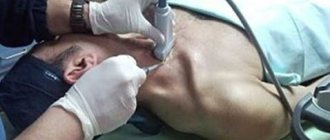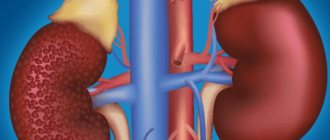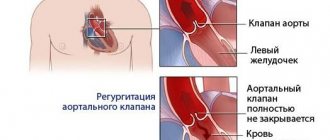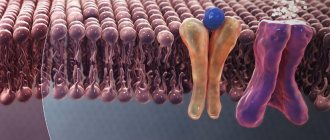Surely each of us has recently come across mentions of “adrenal fatigue” syndrome on the Internet. An increasing number of patients at an endocrinologist's appointment claim that they have this condition. In order to understand what is really bothering the patient and help him in the best possible way, specialists need to have a good understanding of what is usually meant by the concept of “adrenal fatigue.”
Modern medicine denies the existence of such a condition,
however, physicians should certainly take the complaints and symptoms of such patients seriously. According to Endocrine Society President Lynnette Nieman, MD, a senior investigator at the National Institute of Diabetes and Digestive and Kidney Diseases, “Our job is to be good active listeners to determine whether there is a true health problem lurking among the many complaints. It is very important to take the person seriously and not brush them off and say there is no such thing as adrenal fatigue. These people are really worried about something, our task is to understand what it is.” Most often, the patient has already consulted a naturopath who is interested in this condition and is taking dietary supplements with an unknown composition for treatment.
Adrenal glands
The adrenal glands are two small glands that sit above the kidneys and look like mushroom caps. Despite the fact that they are very tiny, they play a huge role in our body and are responsible for our health and weight.
The adrenal glands perform many important functions, and the main one is to show the body how to respond to stress. When the brain sends a danger signal to the adrenal glands, they release adrenaline, norepinerine and cortisol into the body to prepare for fight...or flight.
It sounds like hard work, but that's not all the adrenal glands do. They also produce other hormones that affect every cell in our body. They also play a big role in the production of sex hormones.
The adrenal glands work hard to produce enough hormones and maintain their balance. But when they get tired, they can no longer cope with their responsibilities and health problems begin.
How does fatigued adrenal syndrome occur?
I have already explained that the adrenal gland plays a large role in the body's response to stress. But the problem is that the adrenal glands were designed to deal with short-term stress, such as being chased by a lion, but unfortunately the adrenal glands cannot cope with the chronic stress that we face today. The adrenal glands are excellent at dealing with sudden stress, but they need time to calm down and return to normal. But now, in our time, the adrenal glands cannot calm down - there is no time for a break.
It’s clear that most of us no longer need to run away from lions, but we face stress every day - constant traffic jams, bad bosses, problems at work and in the family. Women are especially susceptible to fatigued adrenal syndrome, because we try to keep up with everything, keep track of everything, keep everything under control, because if not us, then who?! All this negatively affects the health of the adrenal glands and ultimately leads to their suppression.
Due to constant stress, our adrenal glands continuously release cortisol into the blood. The adrenal glands are overworked and soon burnout occurs - what is called tired adrenal gland syndrome, in which the adrenal glands can no longer release enough hormones into the blood, much less maintain the balance of hormones.
As a result, you feel constantly tired, you are constantly out of sorts, and constantly unhappy with life. Your blood sugar levels rise and your blood pressure drops, and your immune system is suppressed. And the icing on the cake is that you start to grow a lifeline around your waist.
Symptoms of Fatigued Adrenal Syndrome
The “funny thing” is that the symptoms of fatigued adrenal syndrome are extremely similar to the symptoms of hypothyroidism, only even more pronounced. I was “lucky” and last year I experienced all these symptoms myself...
So, the main symptoms:
- You are unable to tolerate stressful situations. Any even minimal stress, which you would not have even paid attention to before, drives you crazy, almost to the point of hysteria.
- You can't concentrate or remember anything.
- Everything annoys you.
- You often cry and are hysterical.
- Loss of interest in life
- Inability to rejoice
- Decreased libido.
- In the afternoon and towards night you feel more energetic than in the morning.
- You have a weak immune system.
- You wake up with difficulty and already tired.
- Often, when you get up, you feel dizzy.
- You feel tired all day.
- You have trouble falling asleep and wake up in the middle of the night and can't go back to sleep.
- You have low blood pressure.
- You are constantly freezing.
- You have constant headaches.
- You can't lose weight no matter what you do.
- You constantly crave sweets, salty and unhealthy foods, as well as caffeine.
Treatment of Addison's disease
Treatment of Addison's disease is based on the use of drug therapy aimed at replacing glucocorticoid and mineralocorticoid hormones. Oral administration of hydrocortisone and fludrocortisone is recommended; the dosage of the drugs is selected individually. Therapy is carried out throughout life.
Androgen replacement therapy (testosterone or androstenedione) may be offered to some patients. Patients receiving this treatment report a decrease in symptoms of fatigue, an improvement in mood and psycho-emotional state in general, and an increase in libido (in women), however, these treatment approaches are still being studied.
Treatment for Addisonian crisis includes intravenous hydrocortisone, fluids, electrolytes, and blood pressure medications.
Features and benefits of treatment for Addison's disease at the Rassvet Clinic
Timely diagnosis and effective treatment of rare syndromes and diseases are the areas of interest of all doctors at the Rassvet Clinic.
Our endocrinologists are highly qualified doctors, well trained and have extensive practical experience.
Patients with suspected Addison's disease undergo all necessary diagnostic tests to confirm or exclude the diagnosis. If necessary, an adequate treatment regimen is selected individually.
What to do
What to do if you find similar symptoms in yourself?
Take a 24-hour saliva cortisol test. It's simple. Take 4 test tubes from the doctor and wet one of them 4 times a day. One - immediately after waking up, another closer to lunch, then - closer to dinner, and the last one before bed. Place the test tubes in the refrigerator and take them to the clinic as quickly as possible the next morning.
Fatigue adrenal syndrome is not a disease as such, it is only a condition of the body and the situation can be corrected by changing your lifestyle.
If you are in the last stage and the symptoms are very severe, then it is best to find a naturopath or consult with your doctor so that they can help you choose a treatment.
If the symptoms are rather mild, then you can cope on your own by simply changing your lifestyle.
The first thing to do is get rid of stress. Yes, it's easy to say, but it's necessary. Of course, you are unlikely to be able to get rid of annoying bosses, or constant traffic jams, or turn your child into a real angel, but you can try some relaxing practices.
For example:
- Meditations
- Journaling
- Yoga
- Reading
- Hot baths with Epsom salts.
- Digging in the garden
- Slow walks in the park, forest.
Plus, you should pay attention to your diet and try to eat more healthily. Eliminate grains, dairy products, sugar, caffeine, soy and processed foods. Instead, eat more quality meats, vegetables, healthy fats (coconut oil, avocado, ghee), and add a cup or two of bone broth to your diet.
Bone broth is truly a miracle product! It contains a huge amount of amino acids such as glycine, proline, arginine and glutamine, which promote adrenal health. Bone broth also contains magnesium, which calms the nervous system. Bone broth contains high amounts of gelatin, which helps repair the intestinal lining in cases of leaky gut syndrome.
You need to improve your sleep - sleep more and better. The fact is that with fatigued adrenal syndrome it is almost impossible to fall asleep, and you also wake up in the middle of the night and cannot fall asleep until the morning. It's hard both physically and mentally, and it's exhausting. Therefore, try to create an evening ritual for yourself that will help you relax and fall asleep. The best thing to do is take a warm bath with Epsom salts, listen to relaxing music or read a book. Go to bed clearly before 23.00, or better before 22.00, and try to go to bed at the same time. Don't take your phone into the bedroom, or at least don't use your phone at least an hour before bed. The bedroom should be dark - don’t be lazy and buy dark curtains that don’t let in light. Avoid alcohol and caffeine in the evening, instead drink a cup of bone broth or chamomile tea.
If you have an advanced stage, then you should stop playing sports - only walking. At the initial stage, sports will not hurt.
Plus, you need to take magnesium, vitamin D and omega-3, B vitamins, vitamin C and zinc.
And lastly, delegate.
If there is an opportunity not to do something, don’t do it. Your husband can do the bills, the kids can wash the dishes and do the cleaning, and at work you don’t have to shoulder everything. You need to learn to say no sometimes in order to free up time for yourself.
Adrenal Supplements
Next, I will tell you what supplements you should take to improve adrenal function and how to take them. I provide links to iHerb , but you can buy where you prefer.
B vitamins
B vitamins are essential for energy metabolism. They help synthesize adrenal hormones.
I like this B vitamin complex designed to combat stress. You need to take 3 capsules per day.
Vitamin C
Vitamin C is necessary for the synthesis of cortisol in the adrenal glands.
My favorite is this vitamin C with bioflavonoids . You need to take 1000 mg per day.
Magnesium
Magnesium is necessary for the nervous system, primarily, and for maintaining energy balance.
I like this Magnesium Citrate from Now Foods the most. Take 400 mg per day, in the evening.
Omega-3
Omega-3 normalizes cortisol levels in the blood. Plus, omega-3 reduces inflammation in the body.
I like this version of Omega-3 capsules. 1-2 capsules 2-3 times a day.
Zinc
The adrenal glands need zinc for normal functioning (as does the thyroid gland, by the way).
I like this budget zinc picolinate from Now Foods . You need to take 1 capsule 1 time per day with meals.
Ashwagandha
Ashwagandha is an Ayurvedic remedy that regulates the circulation of cortisol, that is, if there is a lot of it, then it lowers it and vice versa. You need to be careful with Ashwagandha if you have autoimmune diseases (but you need to monitor your body's reaction).
This is a good Ashwagandha from Now Foods. You need to take 1 capsule 2 times a day.
poppy
Maca regulates cortisol and blood sugar levels. Helps with hormonal imbalance.
I'm happy with this maca from Now Foods. You need to take 1 capsule 1-2 times a day.
Recommendations from an endocrinologist at the Rassvet clinic for patients with Addison’s disease
In addition to taking replacement therapy drugs, the patient needs to ensure that he gets enough salt (sodium) from the diet, especially during exercise, fever or gastrointestinal upset.
The dosage of medications taken may be temporarily increased if the patient experiences stress associated with surgery, infectious or other diseases. If the patient is unable to take the necessary medications orally due to nausea and vomiting, injections are prescribed.
It is important for patients with Addison's disease to know that taking steroids in their case is not associated with serious side effects, since the lack of hormone production is compensated. With the correct dosage of medications, there are practically no side effects.
Patients with Addison's disease must always carry a medical document indicating the presence of the disease with them in cases of emergency medical care.
Addison's disease cannot be prevented, but there is an effective treatment for it. With timely diagnosis, proper selection of therapy, and compliance with measures to prevent acute adrenal insufficiency, life expectancy in patients with this disease does not decrease.
Fatigued Adrenal Syndrome and Intermittent Fasting
If you have fatigued adrenal syndrome, you should not fast.
Finally
Treatment of the adrenal glands is a fairly long process, especially if you have suffered from fatigued adrenal syndrome for a long time, so do not expect miracles that everything will get better for you in a few weeks. No, give it time, be patient and one day you will notice that your fatigue and brain fog have disappeared somewhere. When this happens, know that your adrenal glands have returned to normal.
Using my referral code REQ532 on iherb.com you not only receive a 5% discount on any order, but also support the site and the writing of new articles. Thank you ❤
Download my free iHerb guide.
Vitamins and dietary supplements
Secondary adrenal insufficiency
Its manifestations (which we will discuss in more detail below) are partially similar to the primary form of the disease. But the reason is different, and it is rooted “at the top” - in the hypothalamic-pituitary system. More specifically, in the insufficient production of the “stimulating factor” by the adenohypophysis for the endocrine activity of the adrenal cortex. It's called adrenocorticotropic hormone.
What causes this condition?
- Benign (craniopharyngiomas) or malignant processes in the pituitary gland and/or hypothalamus.
- Injuries and surgical interventions in the hypothalamic-pituitary region.
- Necrotic lesion of the pituitary gland after childbirth (so-called Sheehan syndrome).










